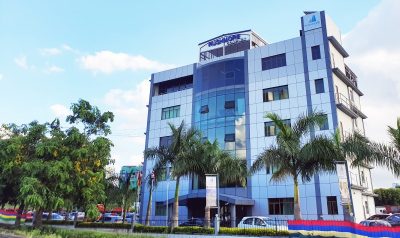The influential magazine Foreign Policy published an article at the end of 2018 entitled The Brexit Fueled Death of the British University. A grim outlook for the British education sector at the start of the year has only got worse as the nation prepares for a “No Deal Brexit” and a long period of uncertainty around UK trade and immigration policies.
A joint letter sent by the heads of 150 UK universities to British Members of Parliament called a No Deal Brexit one of the “biggest threats ever” to British universities. The letter stated “vital research links will be compromised, from new cancer treatments to technologies combating climate change. The valuable exchange of students, staff and knowledge would be seriously damaged.”
British universities are now warning that international students, worth £26bn to the UK economy, will opt for countries such as the US, Canada and Australia instead. Already Australia has moved ahead of the UK as the second biggest destination for overseas students.
However, in a time of crisis for UK universities, opportunities could open up for African higher education institutions. While political developments like Brexit are putting up increased barriers to free global movement, the demand for international education and experience has never been higher.
A British Education in Africa
Since 2002 Rushmore Business School in Mauritius has offered British education in association with British universities from its base in Mauritius. The idea of a winning a British degree without the high cost of relocating and living in the UK proved popular with Mauritian students. Rushmore now offers over 60 programmes in collaboration with UK institutions, some up to PhD level.
In an interview with AfricaLive.net (https://bit.ly/2LX8EPE) Dr Essoo announced plans to open new international Rushmore campus in East Africa and Europe.
Both moves would represent a significant reversal of the current trend in Mauritian education of attempting to build the country as an education hub and attract students from Africa and India to study on the island.
Future of Pan-African Education
A Mauritian higher education institution moving into East Africa could be a significant moment in the development of Pan-African internationalist education.
Dr Essoo outlined Rushmore’s development strategy by stating “We were the first institution to really look at this idea of the education hub, of developing Mauritius as a knowledge hub. The previous government started the education hub programme and this government has continued.
However, having looked at it we realised that we are maybe putting the cart before the horse. My personal opinion is that we have tried this education hub approach and it hasn’t worked very well. We attracted maybe 10 to 15% of our students from Africa and India.
I think our next step needs to be going physically to those markets and expanding there. We are working on that now, we call this the third stage of our development. The first stage was setting up initially, the second stage was building our campus here and consolidating what we had, and now the third stage is to go in to other markets and take our model there.
The plan is to have campuses in Mauritius, Eastern Africa, and Europe offering the same courses and offer students mobility between the three campuses. Students from Europe could spend some time in Africa and some time in Mauritius, and see three different cultures. We would then be a truly international school or University and students would get a truly international education.
In addition to Africa, a lot of Europeans, particularly from eastern Europe, study in the UK either for their full degree or for one term or one year through exchange programmes such as Erasmus.
We believe that with Brexit there is going to be an impact on education and on those students. We believe that we can go into those European markets and offer British education.”
The developments at Rushmore highlight the rapid changes the international education market is going through.
Demand for international education has never been higher. However, the traditional education markets in the global north are fostering political environments increasingly hostile to internationalisation.
International higher education is now a $1.9 trillion global market and enrollments in higher education institutions are projected to grow by 200% by 2040. Total enrolment across the African continent will roughly triple from 7.4 million students to nearly 22 million by 2040.
Following the historic launch of the African Continental Free Trade Area the continent must develop leaders with both a Pan-African and internationalist mindset. The expansion of institutions such as Rushmore Business School will be a significant catalyst in created an integrated African higher education sector able to attract partnerships with the leading British and international academics and teachers.















